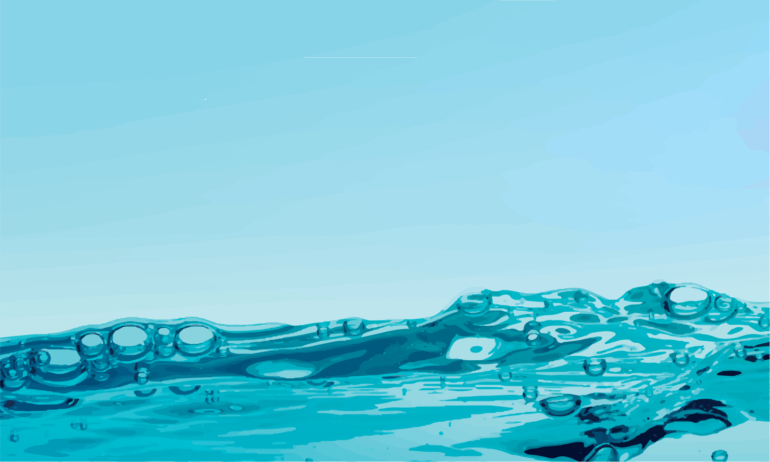Water, one of Earth’s natural resources, home to a vast array of wildlife, used for agriculture, electricity, and various industries, is often overlooked, undervalued, and unappreciated. Yet to the ones that came before us water was referred to as the center of life.
Dating as far back as one of the first records of human life, water has been essential for different cultures across the continent of Africa. Our forefathers/ancestors would settle close to water bodies to ensure provisions for their tribes through fishing, agriculture, and trade.
One might, today, know water as a resource used for cleaning, a source of hydration, and an important part of agriculture, but it carries more significance beyond these applications. It was revered not just for its practical uses but also for its spiritual significance. In the eyes of our ancestors, water held immense power and benefits, many of the great water bodies that turned into tourist attractions have a history within African culture for their healing within our communities.
East Africa is home to a diverse group of water bodies, Lake Victoria, Lake Tanganyika (which happens to be the greatest single reservoir of fresh water on the continent and second deepest in the world, UNEP 2016) and the Nile River Basin, the source of the Nile and the longest river in the world, to name a few. Across the region, many of these water bodies, to this day, are held as sacred and are known to carry medicinal benefits to those who choose to dip into them. Noted as tourist attractions, people from across the world travel to be able to experience the healing and calming powers of hot springs, waterfalls, rivers, and streams.
Hot Springs are known to have high levels of calcium, magnesium, potassium, and sodium. These minerals can be absorbed through the skin by soaking, bathing, or ingesting through drinking. Kit Mikayi, located in Western Kenya, a large rock formation formed millions of years ago due to volcanic activity is believed, according to local legend, to be home to a powerful Luo healer who was revered by the local community for her healing powers. Kit Mikayi’s hot springs are believed to also have elements such as silica and sulfur. Sulfur is widely known for its antibacterial and anti-inflammatory benefits and is helpful in treating skin conditions such as eczema and acne. Silica is beneficial for healthy skin and hair and is also known to soothe joint pain.
The Kitagata hot springs are located in Sheema District, Uganda. According to history, the hot springs were named after a healer Kitagata who was said to have used the water to heal his patients. Similar to Kit Mikayi which is known for its medicinal benefits due to its mineral properties, sulfur, magnesium, calcium, potassium, and sodium. Soaking in these hot springs, which could boil as hot as 80 degrees Celsius, can help improve blood circulation. Detoxifying the body, the spring’s water temperatures can help open up pores and stimulate the sweat glands which aids in the removal of toxins from the body. The Kitagata hot springs not only have detoxifying powers but also provide boosted immunity as sulfur and selenium are believed to have immune-boosting properties.
Lake Eyasi located in Northern Tanzania is a saltwater lake. This saltwater lake is believed to have been formed about 20 million years ago and has been home to various tribes over the years. The high content of salt in the lake helps regulate fluid balance and blood pressure, as well as nerve and muscle function. The water body is also rich in magnesium which is good for bone health, muscle function, and energy production, as well as iron which is essential for the production of red blood cells in the body and the transportation of oxygen in the body.
While soaking in these water bodies provides the very much-needed relief for a variety of ailments and is a great source of mineral absorption, drinking water also has benefits for the human body. Our bodies are made up of 60% water content, drinking a minimum of five glasses of water daily is essential for maintaining hydration, ensuring a smooth digestion process, and regulating body temperature among other important functions. Hydration is important for the human body; lack of enough water in the system is a common trigger for conditions such as headaches and migraines.
Our brains are mostly made up of water; therefore daily water consumption helps keep our cognitive abilities sharp. Water also plays a crucial role in detoxifying and flushing out waste products and toxins from our brains.
Water aids in weight loss, while working out and eating right are important in the quest to lose weight; drinking water has also shown its contribution to the process. Drinking adequate amounts of water supports the digestive process, smooth digestion aids weight loss by promoting sufficient nutrient absorption and waste elimination. A smooth digestive process also ensures regular pooping which is a sign of a healthy system.
Water plays an important role in regulating body temperature. During physical activities such as working out or doing manual labour, our body temperature rises and we dispel water from our bodies through sweat, which evaporates and cools down the body. Drinking water is a great way for replenishing the water lost through the process of sweating. As an important component of our body system water intake ensures optimal blood volume, this helps in transferring heat from the body’s core to the skin promoting heat dissipation.
Whether it be for spiritual purposes or scientific led purposes one fact remains, water has and always will play an important role in every civilization.

